Common Drinks That Cause Premature Hair Loss and Gray Hair
Finding gray hairs at 25? Noticing more strands in your brush lately? Your daily drink choices might be the surprising culprit behind your hair woes.
Hair loss and premature graying aren’t just about getting older anymore. If you’re seeing silver strands pop up in your twenties or thirties, or if your hairline seems to be retreating faster than you’d like, recent research points to some unexpected culprits hiding in your fridge and at your local coffee shop.
Why Hair Goes Gray (And Falls Out) in the First Place
Before we dive into the drink drama, let’s talk about what’s actually happening when hair loses its color. Your hair follicles contain specialized cells called melanocytes that produce melanin – the same pigment that gives your skin its color. Think of melanin as nature’s hair dye, coming in two main varieties: eumelanin (which creates black and brown tones) and pheomelanin (responsible for red and blonde shades).
A 2023 study published in the International Journal of Molecular Sciences revealed something fascinating: our bodies have what scientists call a “melanogenic clock” controlled by our DNA. This biological timer gradually slows down melanin production as we age, eventually causing hair to lose its color and turn gray or white.
But here’s where it gets interesting – this clock doesn’t tick at the same speed for everyone. While genetics load the gun, lifestyle factors like stress, poor nutrition, and yes, what you drink, can definitely pull the trigger earlier than expected.
Dr. Ted Lain, a dermatologist specializing in hair health, explains it simply: “When we age, the pigment-producing cells start dying off. But external stressors can accelerate this process significantly, causing premature graying and hair loss in people who shouldn’t be experiencing these issues yet.”
The Surprising Drink Culprits Damaging Your Hair
Sugary Beverages: The Sweet Route to Hair Loss
Here’s a stat that might make you think twice about that afternoon soda: A comprehensive 2023 study from Tsinghua University involving over 1,000 young men found that those who consumed more than 3.5 liters of sugar-sweetened beverages per week – that’s roughly 10 cans – were three times more likely to experience male pattern hair loss.
The study, published in the journal Nutrients, didn’t just look at soda. Researchers included all sugar-sweetened drinks: energy drinks, sweetened coffee and tea, fruit juices with added sugar, flavored milk drinks, and sports beverages. The results were consistent across all categories.
But why does sugar wreak such havoc on your hair? The mechanism is actually pretty straightforward. Excess sugar increases oil production on your scalp, leading to inflammation and irritation that can damage hair follicles. This creates a domino effect: clogged pores, bacterial growth, inflammation, weakened hair roots, and eventually, hair that’s more prone to falling out.
Beyond the scalp issues, high sugar intake triggers what’s called the polyol pathway, where excess glucose gets converted into compounds that can directly damage hair follicles over time. It’s like your sweet tooth is slowly sabotaging your hair from the inside out.
Alcohol: The Dehydrating Hair Destroyer
Recent research shows that alcohol doesn’t just affect your liver – it also increases the risk of both hair loss and premature graying. The mechanisms behind this are more complex than sugar’s straightforward inflammatory response.
First, alcohol is incredibly dehydrating. Your hair follicles need adequate hydration to function properly, and chronic dehydration can push hair into the “resting” phase of growth prematurely, leading to increased shedding.
Second, alcohol interferes with nutrient absorption, particularly B vitamins, zinc, and iron – all crucial for healthy hair growth. A 2013 study found that people with various types of hair loss, including male pattern baldness and telogen effluvium (temporary hair loss), often showed zinc deficiency.
Perhaps most significantly, alcohol disrupts hormone balance and increases oxidative stress throughout the body. This oxidative damage specifically targets melanocytes (those pigment-producing cells we talked about), leading to premature graying while simultaneously weakening hair follicles.
The Science Behind the Damage
A 2020 study published in the International Journal of Trichology identified that an imbalance between antioxidants and free radicals in the body is a primary cause of premature graying. Both excessive sugar and alcohol consumption contribute to this imbalance in significant ways.
When you consume large amounts of sugar, your body produces more free radicals as it processes the glucose. These unstable molecules damage cells throughout your body, including the melanocytes in your hair follicles. Over time, this oxidative stress accumulates, leading to earlier graying and weaker hair growth.
Alcohol compounds this problem by depleting your body’s natural antioxidant stores while simultaneously generating additional free radicals during metabolism. Research has shown that people with premature graying often have significantly lower levels of key nutrients like ferritin, calcium, and B vitamins – many of which are depleted by regular alcohol consumption.
What You Can Do to Protect Your Hair
The good news? Hair damage from drinks is largely preventable, and in some cases, even reversible if you catch it early enough.
Drink Swaps That Actually Help
Instead of reaching for that sugary drink or alcoholic beverage, consider these hair-healthy alternatives:
Water with fresh fruit – Sounds boring, but hydration is crucial for hair health. Jazz it up with cucumber, mint, or berries for natural flavor without the sugar crash.
Green tea – Packed with antioxidants that fight the free radical damage we discussed. Plus, some studies suggest green tea may even promote hair growth.
Fresh vegetable juices – Carrot, spinach, and other veggie juices provide vitamins A and C, both important for hair health.
Foods That Fight Hair Loss
Research shows that foods rich in antioxidants can help protect melanocytes from damage. Focus on:
- Berries (strawberries, blueberries) for vitamin C and antioxidants
- Leafy greens (spinach, kale) for iron and folate
- Nuts and seeds (almonds, walnuts) for healthy fats and vitamin E
- Fatty fish (salmon, mackerel) for vitamin D and omega-3s
- Cruciferous vegetables (broccoli, cauliflower) for sulfur compounds that support hair structure
Multiple studies have found that vitamin D supplementation can reduce hair loss and promote new hair growth, making it particularly important if you’re not getting enough sun exposure.
The Stress Connection
Here’s something that might surprise you: the stress of worrying about hair loss can actually make the problem worse. Research from Turkey found that premature graying is closely related to emotional stress, alcohol consumption, and chronic diseases in genetically predisposed individuals.
This creates a bit of a vicious cycle – stress causes hair problems, which cause more stress, which causes worse hair problems. Breaking this cycle often requires addressing both the physical causes (like diet and lifestyle) and the emotional impact.
When to See a Professional
While dietary changes can make a significant difference, some hair loss requires medical intervention. Consider seeing a dermatologist or trichologist (a hair and scalp specialist) if you’re experiencing:
- Sudden, dramatic hair loss
- Patches of complete hair loss
- Hair loss accompanied by scalp irritation or pain
- Premature graying before age 20 (if you’re Caucasian) or 30 (if you’re African American)
In severe cases, treatments like minoxidil, low-level laser therapy, or hair transplantation might be necessary. However, prevention through lifestyle changes remains the most effective approach for most people.
The Bottom Line
Your hair is essentially a reflection of your overall health, and what you drink plays a bigger role in that reflection than most people realize. The research is clear: consuming more than about 10 cans of sugary drinks per week significantly increases your risk of hair loss, while regular alcohol consumption can accelerate both hair loss and premature graying.
The solution isn’t about perfection – it’s about balance and making informed choices. You don’t have to swear off all sugar or never have a drink again. But if you’re noticing changes in your hair and you’re regularly consuming large amounts of sugary drinks or alcohol, consider this your wake-up call.
Small changes can make a big difference. Swap that afternoon soda for sparkling water with fruit. Choose wine over cocktails when you do drink. Focus on getting plenty of water, and make sure your diet includes those hair-healthy nutrients we discussed.
Your future self (and your hair) will thank you for the changes you make today. After all, prevention is always easier than trying to reverse damage that’s already been done.
Remember: While dietary changes can significantly impact hair health, individual results vary. If you’re concerned about hair loss or premature graying, consult with a healthcare professional for personalized advice.
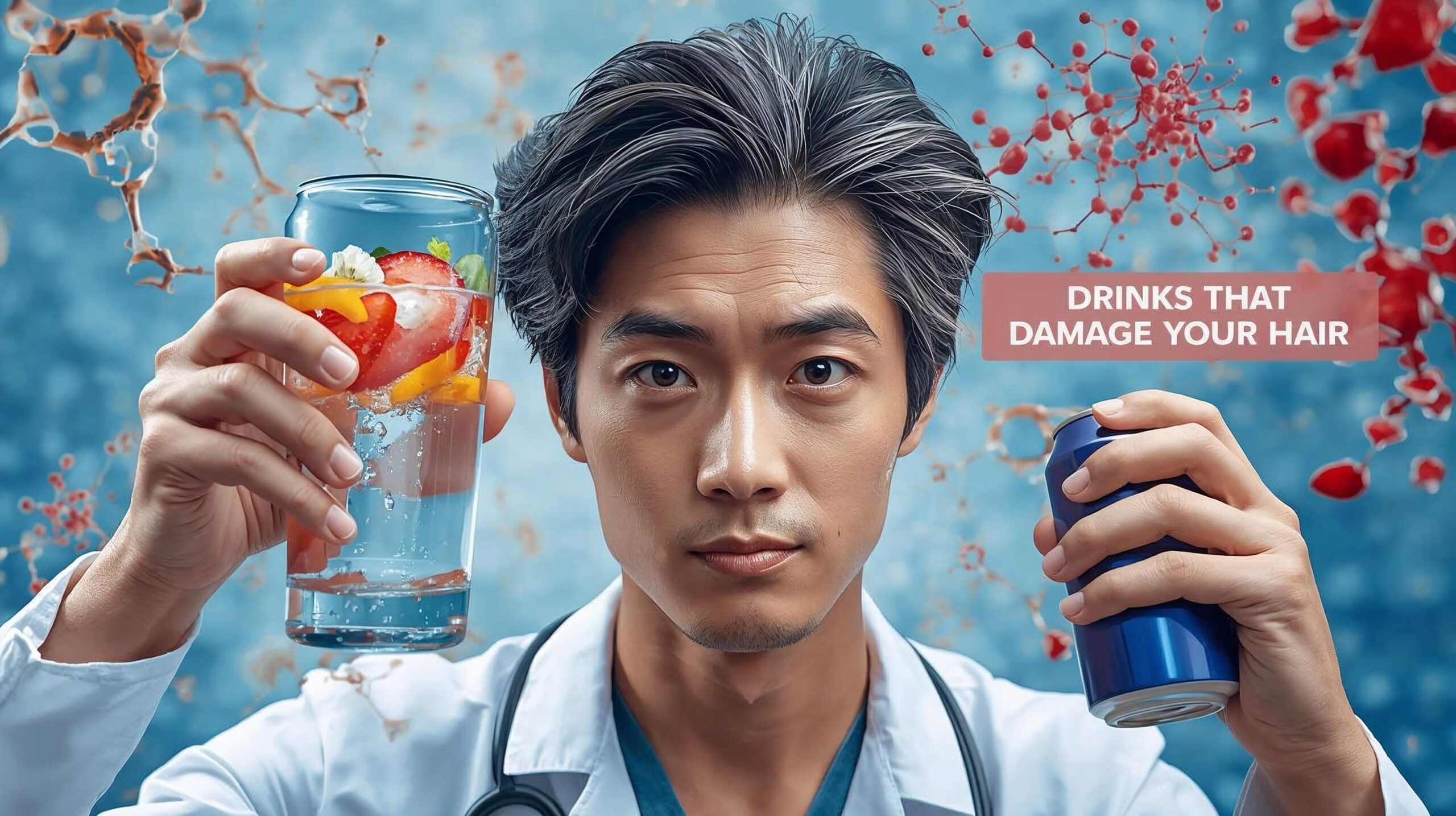
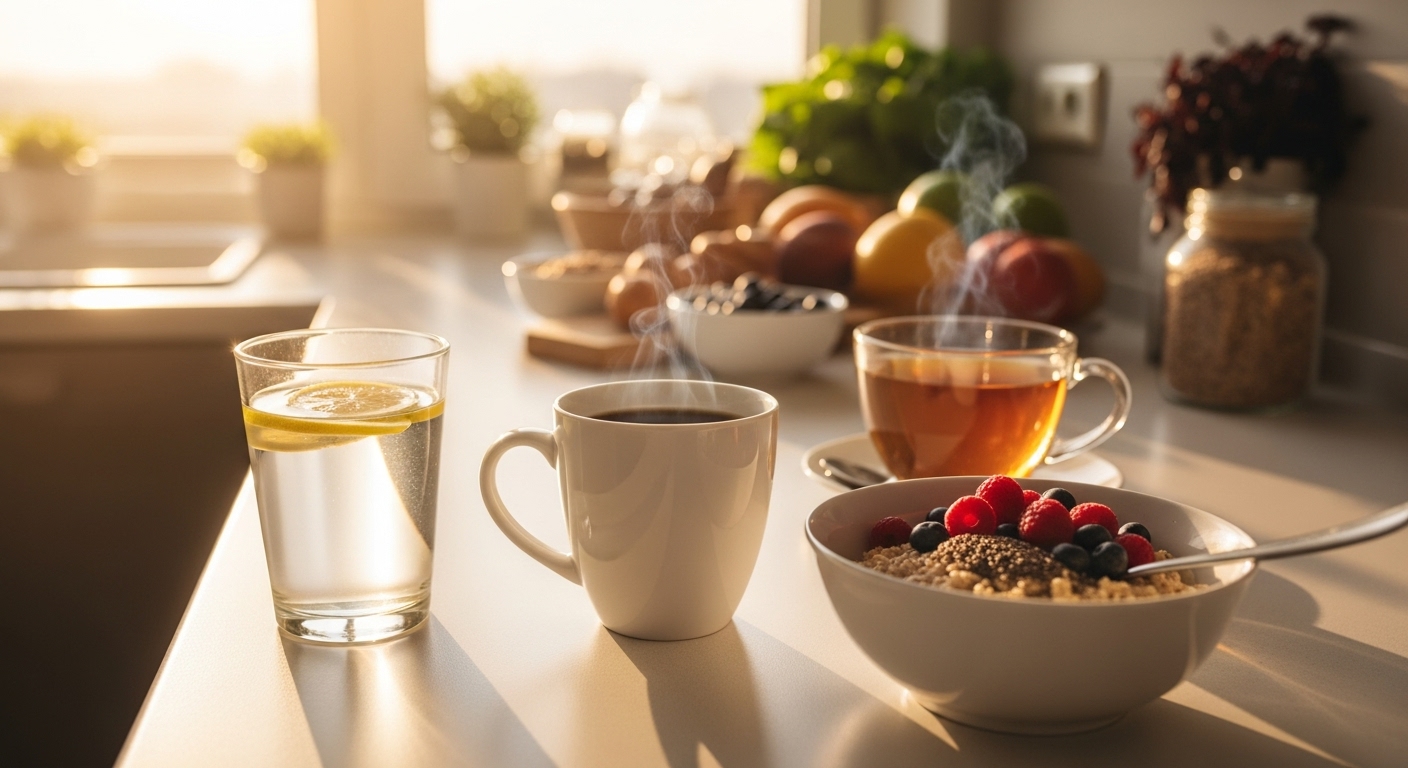
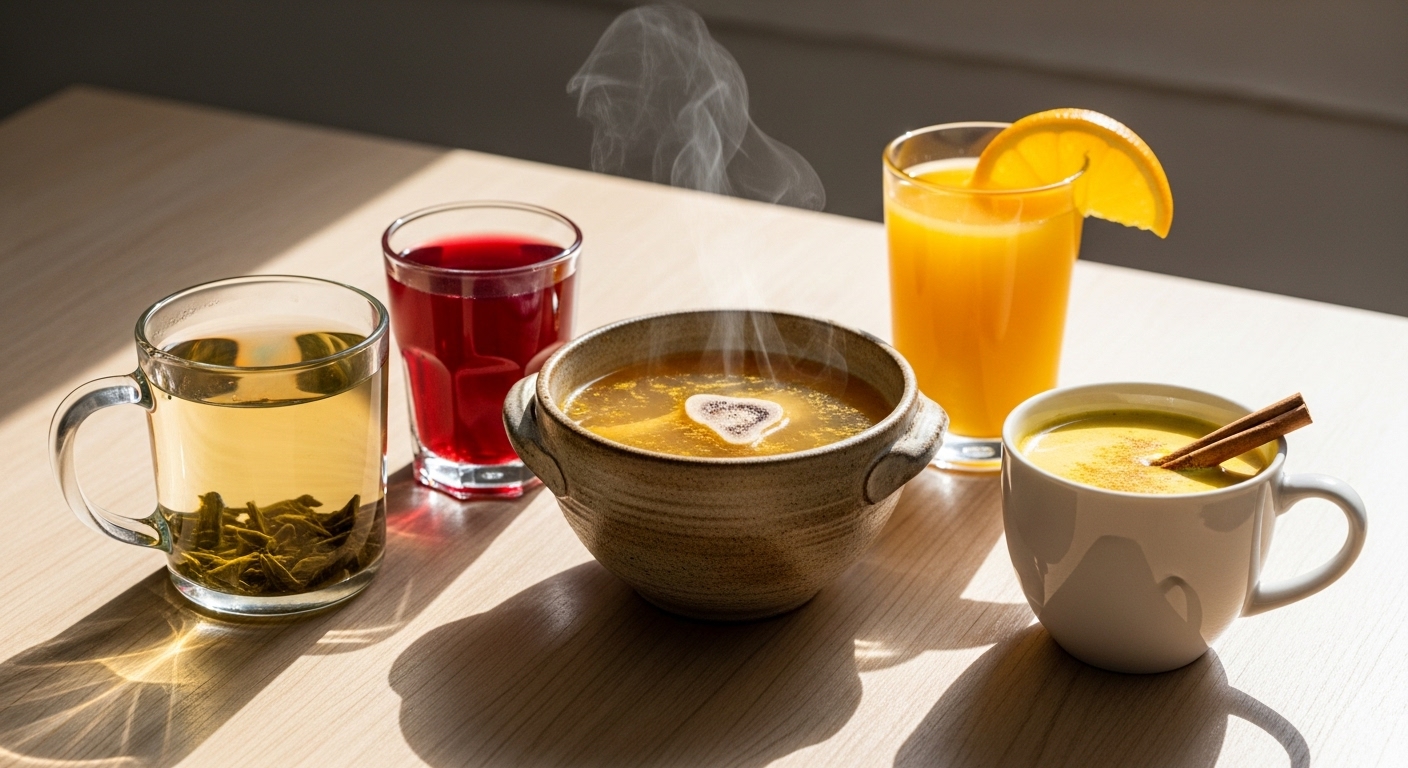




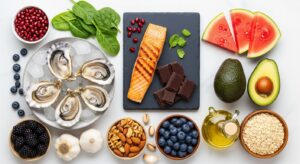





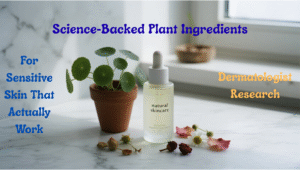
Post Comment